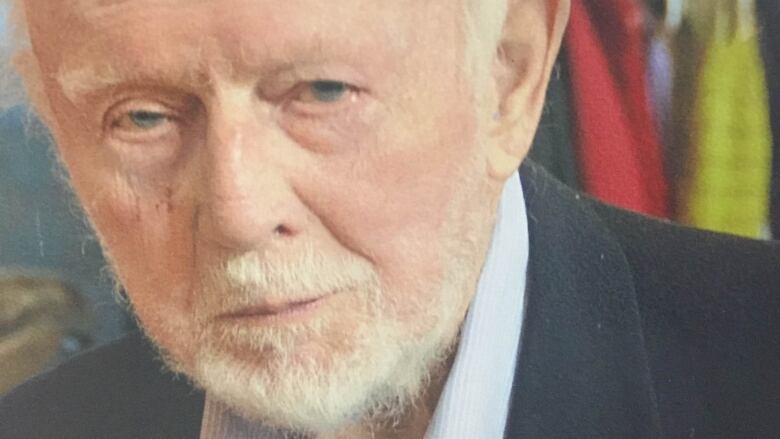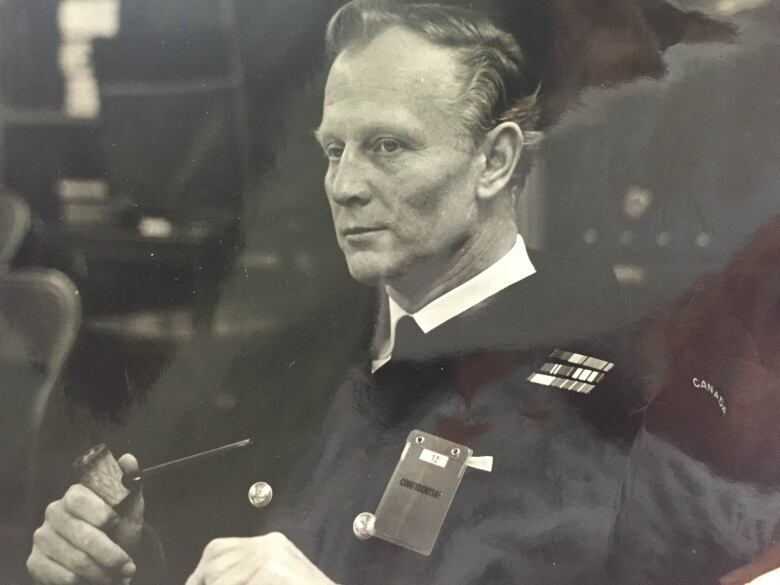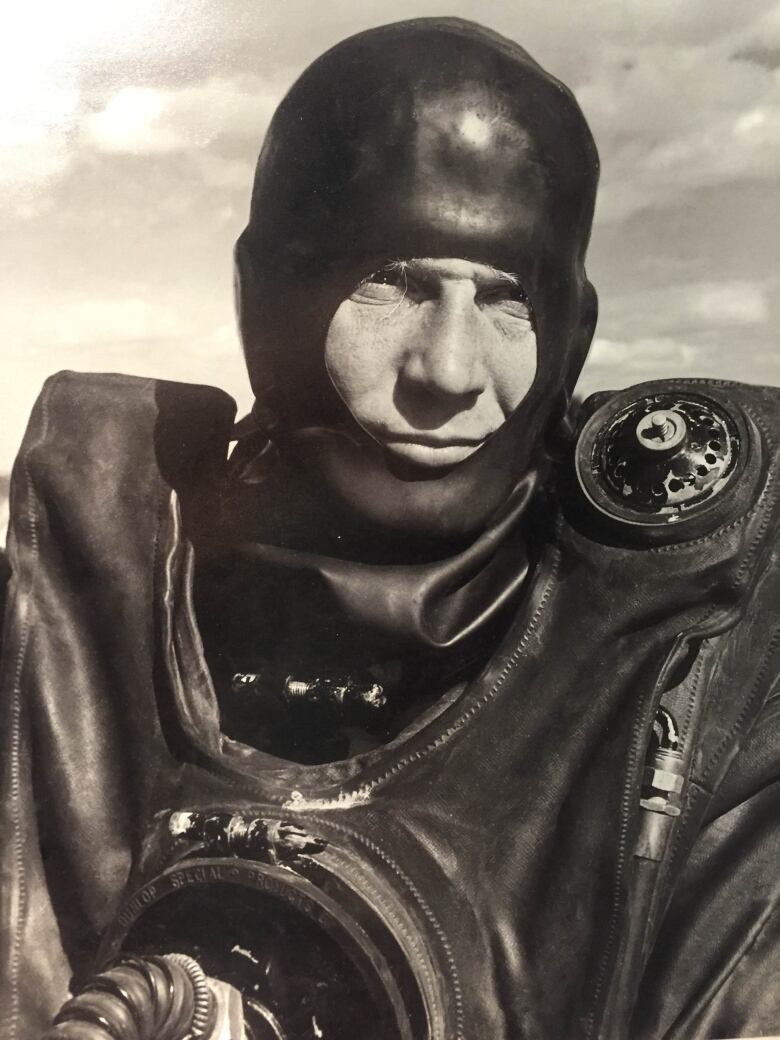Halifax WW2 vet Alan Sagar fights for place in Camp Hill
British navy vet came to Canada too late to meet Veterans Affairs conditions

The wife of aSecond World Warveteran living in Halifax says bureaucratic barriers are preventing her husband from accessing the care he wants.
Margaret Sagar's husband, Alan Sagar, served in the British Royal Navy from 1943 until the end of the war.
Unlike his contemporary Petter Blindheim who was initiallydenied care at Halifax's Camp Hill Veterans Memorial Hospital because he served in the Norwegian military while that country was occupied by Nazi Germany Sagar faced few obstacles in getting recognized as an Allied war veteran.
"It was done very quickly," Margaret Sagar told CBC's Information Morning.
But her husband stillhas been denied a place at Camp Hill.
The reason? He's Canadian nowbut he wasn't during the war.
"There was no question about him being an Allied war veteran, but then they turned around and said, 'Well, he still can't go there because he wasn't Canadian'."
The situation is ironic, she said, because her husband served in the Canadian Forces after the war as an instructor in the fleet diving unit. He rose tobecame the unit's commanding officer.

Alzheimer's, Parkinson's
Meanwhile, Alan Sagar continues to fightthe effects ofAlzheimer's and Parkinson's, and he and his wife want him to stay at home as long as possible.
MargaretSagarworked atCamp Hill inthe1980sas the coordinator of volunteer services. She reached out to staff to be assured her husband could have a place at the facility for respite, or long term if his condition gets worse.
His status as an Canadian serviceman secured some of the care he needs, including assistance with home-care, day programs and physical rehabilitation.
But it doesn't securehis place at Camp Hill.
Entitled to a bed, but not at Camp Hill
Camp Hill operates aspart of the QEII Health Sciences Centre, but admissions are handled by VeteransAffairs Canada.
Veteran Affairs said Allied veterans in Canada are entitled to long-term care in a "community bed" in a place like a nursing home, but not to a bed in Camp Hill.
"Community facilities with contract beds (like Camp Hill) [are] designated through contractual arrangements with the province, health authority and/or facility for priority access of Second World War and Korean War Veterans of Canada's Armed Forces," department spokesmanMarcLescoutre said in a statement.
"While we always work to deliver the support a veteran and his/her family needs, it is not always possible to do so in a specific facility of a veteran's choosing."
Lapel pin for service
For now, Alan Sagarcherishes one concrete reminder that Canada has recognized his status as a veteran. Then Prime Minister Stephen Harper gave him a lapel pin and certificate of honour in recognition of his military service.
Margaret Sagar wantsrecognition with more tangible benefits for her husband.
"I do wonder how much bureaucracy and how much office time was used to process all those [lapel pins and certificates]and how much better the money could have been spent in looking after veterans' care."













_(720p).jpg)


 OFFICIAL HD MUSIC VIDEO.jpg)
.jpg)



























































































